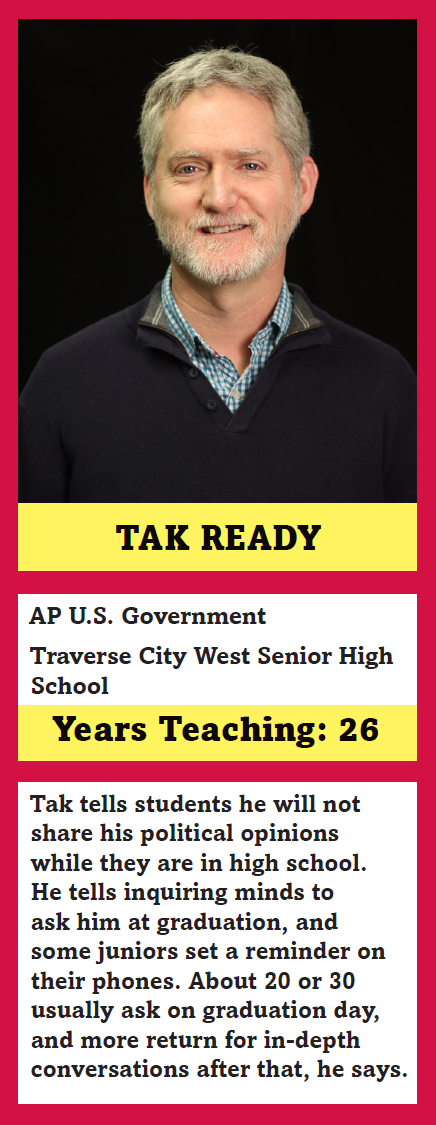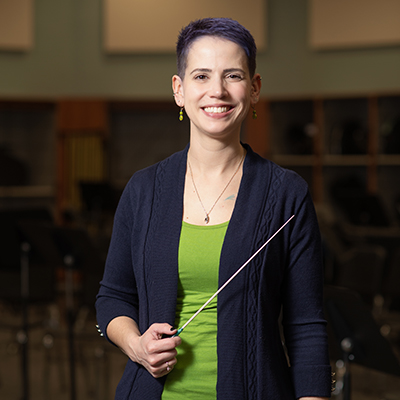Tak Ready
 Are there political divisions or tribes at your school?
Are there political divisions or tribes at your school?
There is definitely a mixture of political views. In the 2016 mock election at Traverse City West Senior High School, Hillary Clinton won by 1 vote out of approximately 500 votes cast. So the school is pretty evenly divided.
What does student political involvement look like?
I require all students taking my AP U.S. Government class to put in some time working on any campaign of their choice. Some work for Democrats, some for Republicans, some for judicial candidates, etc. Some of the students canvass, some phone bank, some work on mailings or do data entry for a campaign. I have found that many of the students continue to work on campaigns even after they graduate. In fact three of my former students were paid staffers this year for a local Congressional candidate.
What current events/arguments/court cases have you used to draw students into deeper learning and debate?
The Brett Kavanaugh hearing, migrant caravan, Russia investigation, Governor election, Michigan ballot proposals 1, 2, and 3. Both our Republican and Democratic Congressional candidates and state Representative candidates came in to speak.
I do a mock Supreme Court for approximately 3 weeks. Each kid is assigned the role of a lawyer for a major Supreme Court case, and they present oral arguments in front of the class. The rest of the class are given black graduation gowns that serve as judicial robes. The judges pepper the two lawyers with questions. The judges then debate and vote for which side they thought had the better constitutional argument. Court cases that are argued in class include Roper v. Simmons, Roe v. Wade, Obergefell v. Hodges, Tinker v. Des Moines, New Jersey v. T.L.O., and more.
I also do a Mock Senate. Kids write their own bills. I then divide the kids into committees to mark up the bills and either vote for them—and send them on to the full Senate for debate—or vote against the bills so they die in committee. Bills that get to the full Senate are debated, sometimes filibustered, and then either signed or vetoed by a president who the class elected earlier in the year, using a mock electoral college.
What is your job in guiding students through political questions?
I never shy away from political conversations. We are debating something controversial pretty much every day. I find that this is how kids become interested in politics. I teach my students how to positively debate, and what to avoid in discussion at the beginning of the year. Then I grade them regularly on participation. They must always avoid personal attacks. They must also support their opinion during class discussions with cited evidence from a reputable source. I never tell my students my political views. I tell them that it is my job to get them to think, NOT tell them what to think.
Why do you think it’s important to have these conversations?
These political conversations are so important, because it is my job to help my students become critical thinkers. I tell my students that if I see them 5 or 10 years from now, I will not care if they remember that 3/5 of the Senate is needed to vote to invoke cloture. But I will care that they pay enough attention to current events to vote intelligently. I won’t care how they vote, just that they are an informed voter trying to make their community a better place. If they are, then I will feel I did my job well.


